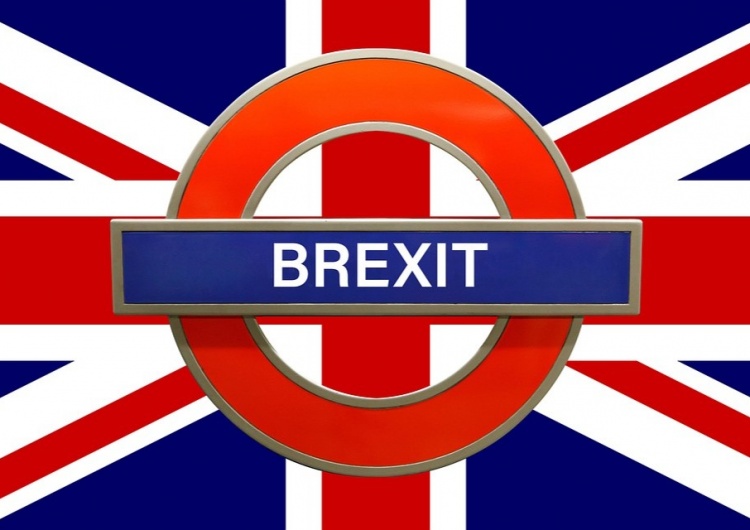The malicious claims that the only thing Donald Tusk did was Great Britain out of the European Union. It is hard to suppose, however, that Queen Elizabeth II’s subjects did so to please the “King of Europe.” Instead, they instinctively returned to the islands separated by the English Channel from the mainland, which on the other side are called, for some reason, the French Channel.
The campaign before the June 23, 2016 referendum was hot and colorful. There were demonstrations, rallies, speeches, political taunts, strong slogans and posters hung in windows declaring that those who wanted to “leave” lived here and those who wanted to “stay”. It was not uncommon to see both in one window, indicating the division of the family. The face of the “Exit” camp was full of liveliness, the great speaker Nigel Farage, who was hated on the fringes of Brussels and Strasbourg for his sharp comments and effective comparisons directed at Eurocrat and progressive leaders. His letter passed to the records of the European Parliament, where he stated that Donald Tusk’s predecessor as president of the Belgian European Political Council Herman Van Rompuy “had the charisma of a wet cloth and the appearance of a bank clerk”. During the campaign, Farage, a glass of beer in hand, wandered around the pubs of ‘old’ England, with equally effective comparisons to the European Commission, European Courts and the European Parliament, where ‘political dwarves’ and ‘laundering’ of national parliaments ‘sit’ .
The collective face of the “Remain” camp was Her Majesty’s Conservative government headed by Prime Minister David Cameron. As polls showed 85 per cent of voters wanted more information on the referendum, the government spent more than £9m in spending and mailed a pamphlet to all homes saying the UK should stay in the EU because Brexit It will lead to an unpredictable economy. Losses, it will lower the status of the kingdom, will deprive London of political influence and the possibility of influencing the financial markets, and it will be a disaster for the image.
Camp howls “we get out” that such propaganda for taxpayer money is an unfair game and a false narrative, because Britain outside the EU will regain national sovereignty, move away from the tutelage of European courts and return to the law that was passed. The House of Commons, he will be able to control immigration himself, on his own with whom and what economic agreements he wants, not to mention the savings to the EU budget, which Europeans squandered in Brussels.
Months of controversy passed until June 23, 2016, and the referendum venues opened. The mainstream media reassured the “remain” camp’s victory, and that its supporters, after thousands of demonstrations in London, were convinced of the inevitability of victory. There was a complete mobilization in the “We go out” camp. The effect of 52 percent is because we’re back beyond the canal and 48 percent because we stay in the EU structures. The votes of one million and 330 thousand people prevailed.
The shock of Britain’s exit from the European Union
The surprise at the loss was enormous. There was a storm of calls for a re-referendum. However, the government accepted the defeat and took the position that the will of the JKM subjects was correct and informed the European Commission of its intention to withdraw from the European Union. Diplomats began formal negotiations, and at the same time, studies began on the reasons for the reluctance of the British about the supposed glowing future of a united Europe.
The three primary polls conducted immediately after the referendum yielded the same results. Those who voted to leave the European Union mentioned “sovereignty” and “immigration” first. Under the banner of sovereignty, the most common meaning was “the principle of making decisions in the affairs of the United Kingdom within the United Kingdom”, rather than externally. Similarly, under the heading ‘Immigration’ it was understood that only the United Kingdom, and only the United Kingdom, should control its borders and decide who would settle there.
Why is Britain leaving the European Union?
In a broader assessment two years after the referendum, the Center for Social Investigation asked 3,000 respondents why they voted for Brexit. The cold answers were identical: I wanted us to take back control of immigration, I wanted the European Union to have no influence on our legislation, and I didn’t want to pay more contributions to the Union. In the latter place, the answer “I wanted to teach the British political class” is crossed out, dismissing the repeatedly raised argument that supporting “Brexit” was a voice of protest.
Speaking of the protests, the most severe of them were heard against the Brussels designation. Some have ridiculed her obsession with regulating daily life, pointing out the ban on balloon-blowing for children under the age of eight. Others criticized the tendency of the EU elite to greedily allocate new spheres of influence, ignoring the provisions of the treaty. British union activist Enrico Tortolano summed up this practice by saying that “the EU is anti-democratic and unreformable”. These words sound familiar. And if the information that thanks to the VAT stamp, there are now 100 billion zlotys more in Poland than in 2015, collides with the news that the CJEU has found that the Polish order to pay VAT is inconsistent with EU law within 5 days of imported fuels purchased in another EU country, and this takes a warning from Paul Mason, columnist for the Guardian:
“The European Union has created an ecosystem that is exceptionally favorable for monopolistic corporations, tax evasion elites and the world of organized crime.”







